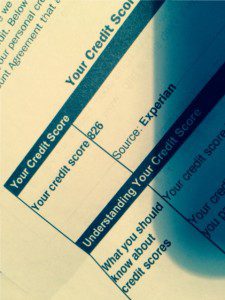 Long before you apply for a mortgage, it is a good idea to check your credit score. Credit scores determine if you qualify for a loan and the rate you pay for your loan.
Long before you apply for a mortgage, it is a good idea to check your credit score. Credit scores determine if you qualify for a loan and the rate you pay for your loan.
If your credit score is low, you may not be able to get a mortgage, even if you have the down payment and income to qualify. People with higher credit scores can get the best deals on rates; those with average or slightly below average credit scores will pay more, if they still qualify.
People with good income and plenty of money can have a low credit score because of late payments, carrying high balances, or by not having an ongoing history of using credit responsibly.
There are things you can do to beef up that number. I asked Ellen Klapper from Eastern Bank if I could reprint the steps she advises borrowers to use to bring their credit scores up. This is important, since tSome “fixes” hurt your score, but these won’t. Eastern’s information is in black, my comments are in blue:
There are five factors that impact credit scores:
1. Payment History (35%): Paying debt on time and in full has a positive impact, and late payments, judgments and charge-offs have a negative impact.
If you are planning to buy, don’t be late on anything! Make this a priority.
2. Outstanding Credit Balances (30%): Ratio of outstanding balance to available credit is important. It is wise to keep it below 50%; 30% is even better.
You don’t have to pay off all your outstanding balances. Pay as many down below 50% as you can. If you can pay them all down to 30%, that’s even better. It is better to pay more of them down than to pay off and close some of them.
3. Credit History (15%): The length of time a particular credit line has been opened is important. A seasoned borrower is stronger.
You need credit cards or installment loans to develop a credit rating. Even if you use them only some of the time, having them for a long time will help your score. (a “seasoned buyer” has had credit for years and not gotten behind in payments or maxed out their available credit lines.)
4. New Credit (10%): In the long run, new lines of credit may raise your score by giving you a lower debt-to-available credit ratio. In the short run, however, they will lower your score because it looks like you are short of cash.
Open a few lines of credit a year or so before beginning to house hunt. This will help your credit score. Once you apply for a mortgage, don’t add or cancel credit cards or credit lines without getting advice from your mortgage lender.
5. Types of Credit (10%): A mix of auto loans, credit cards, and mortgages is better than a concentration in credit cards only.
Thank you to Ellen J. Klapper of Eastern Bank.

Leave A Comment